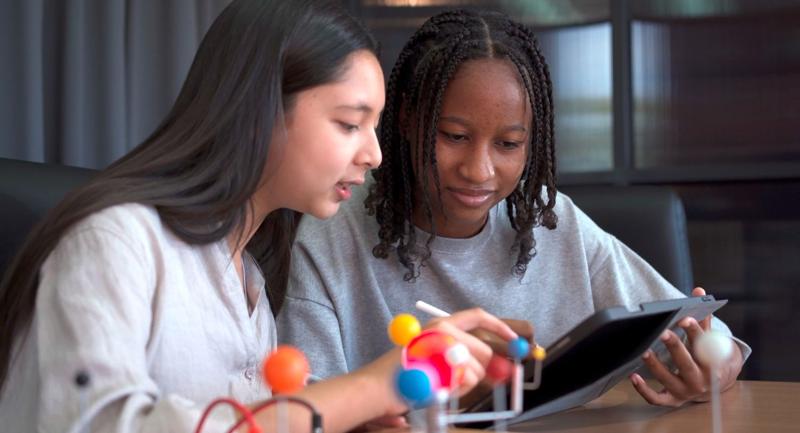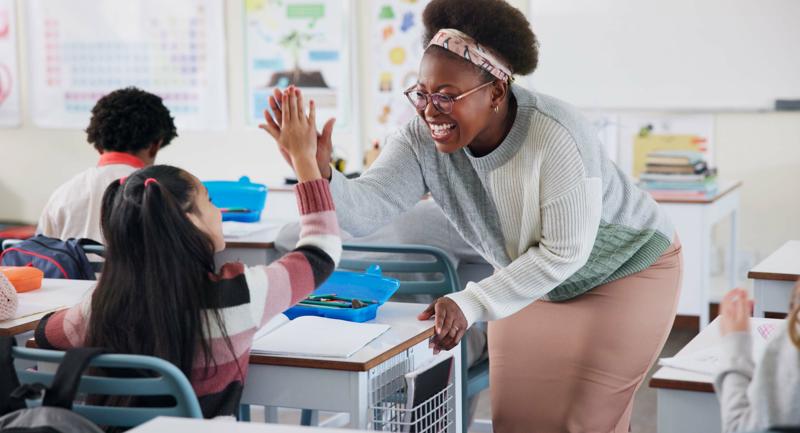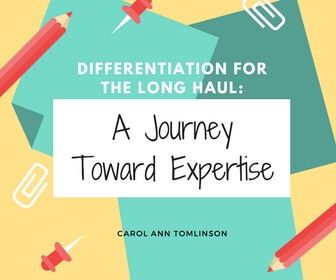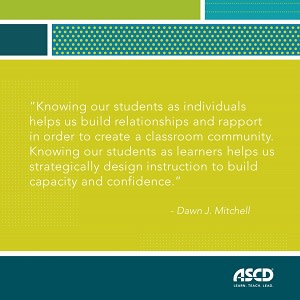By Ranjit Sidhu, CEO & Executive Director
ASCD strongly condemns the attack on the U.S. Capitol this week intended to disrupt the Congressional electoral vote confirmation. Like you, we watched in horror as political divisions in this country devolved into unjustifiable violence and chaos. Although we are dismayed and heartbroken by the current inability for this country and its citizens to dialogue and debate in ways that result in a common unified direction, we hold hope and confidence that our elected leaders and citizens alike can move forward together with a renewed purpose toward civility, decency, and common purpose.
At the heart of any healthy democracy is a well-educated and informed citizenry. Indeed, education is the bedrock for democracy and civic discourse. Among the critically important services educators provide is your work instilling our children with knowledge, inspiration, hope, and compassion every day.
We know that this endeavor is the key to building well-rounded adults able to participate in the strengthening of our communities, states, and this nation. We commit to support you.
To assist you as you navigate conversations with your students and staff about the events of this week, we have made available free, targeted resources that will be immediately helpful to guide classroom discussions, as well as resources for district and school leadership teams (see below).
In these challenging times, know that we will lean into our mission to serve as a resource to all educators; to promote equity and social justice; to advance a whole child education that ensures that all students are not only academically challenged, but also healthy, safe, engaged, and supported; and—importantly—to support your well-being as an educator.
As Nelson Mandela famously said, “The power of education extends beyond the development of skills we need for economic success. It can contribute to nation-building and reconciliation.” Nothing could be truer. Our greatest hopes for enduring peace and prosperity are parents and educators.
We commit to being part of the solution, and we have you—educators doing such heroic work with our students every day—as inspiration.
Engaging Students in Civics
Video: Public Spirit in the Classroom (Educational Leadership)
Douglas Fisher and Nancy Frey
How schools can teach the common good.
Seizing the Civic Education Moment (Educational Leadership)
Andrew Tripodo and Robert Pondiscio
To bolster students’ understanding of politics and democracy, schools must couple experiential projects with in-depth content study.
Teaching Democracy in Polarizing Times (Educational Leadership)
Jacob Fay and Meira Levinson
By using case studies to discuss ethical dilemmas with their colleagues, educators can better prepare to address political and civic challenges in their schools.
What Kind of Citizens Do We Need? (Educational Leadership)
Joel Westheimer
Democracies make special demands on their citizens. Schools must prepare young people to meet those demands.
Facilitating Classroom Discussions
Courageous Conversations for Equity and Agency (Educational Leadership)
Anne Vilen and Ron Berger
Grappling with tough topics strengthens students’ discussion skills, broadens their perspectives, and empowers them as civic actors.
Questioning for Classroom Discussion: Purposeful Speaking, Engaged Listening, Deep Thinking (ASCD Book)
Jackie Acree Walsh and Beth Dankert Sattes
What type of questioning invigorates and sustains productive discussions?
The Power of Protocols for Equity (Educational Leadership)
Zaretta Hammond
Structured protocols can help teachers ensure equitable participation and create more culturally responsive discussions.
Aleta Margolis
Teachers need to talk with their students about the unprecedented events we’re experiencing, about the history that’s being made right at this moment.
Addressing Equity
Reimagining the Null Curriculum (Educational Leadership)
H. Richard Milner IV
To support true learning, schools must teach difficult issues like Charlottesville.
Who Has the Privilege to Be Empowered? (Educational Leadership)
Dena Simmons
We can’t foster student agency without addressing racial oppression.
Promoting Student Well-Being
Classroom Management as a Curriculum of Care (Educational Leadership)
Carla Shalaby
Classroom management can be an opportunity to teach young children what it really means to take care of each other.
Video: “In a Time of Calamity, What Do Children Need from Us?“ (Educational Leadership)
Teacher Justin Minkel shares his experiences supporting young students in times of crisis.
Russ Quaglia, Kristine Fox, Lisa Lande, Deborah Young
Students, teachers, administrators, and parents must work and learn together in ways that promote deep understanding and creativity.
Supporting Educators in a Time of Change
Coping with Change and Uncertainty (Educational Leadership)
Phyllis L. Fagell
How educators can regain a sense of control during these tumultuous times.
Baruti Kafele
The global pandemic of 2020 has school and district leaders scrambling to maintain some level of continuity for their students while dealing with uncertainty about when and how schools will reopen. One principal shares his research strategies.
We’re Not OK, and That’s OK (Educational Leadership)
Jill Harrison Berg and Henry Oppong
Educators must cultivate empathy in trying times.








